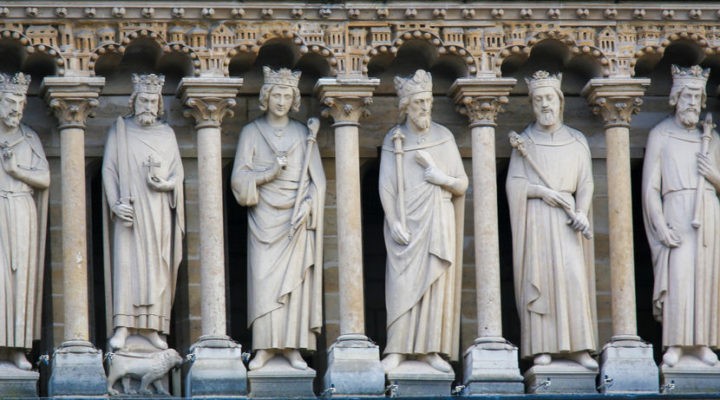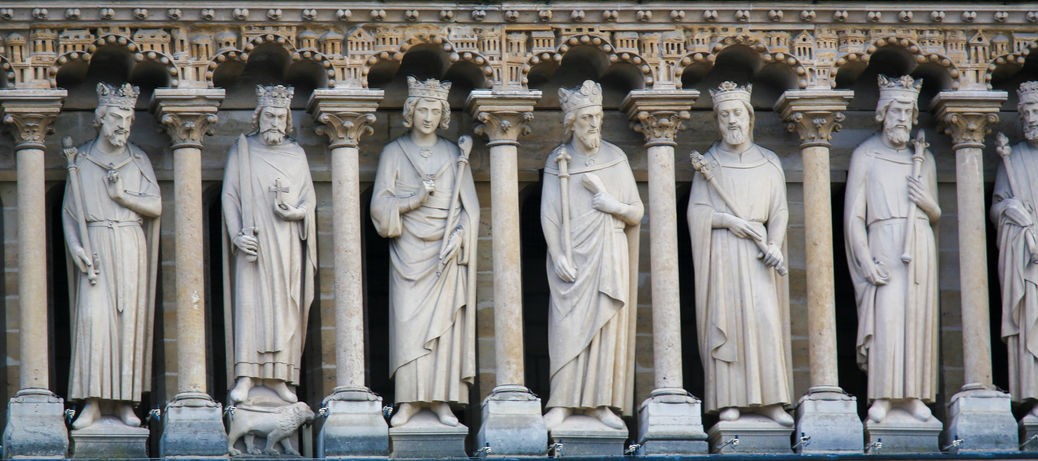When he traveled, Martin Luther King Jr. often carried with him Jesus and the Disinherited, a small book by Howard Thurman, one of the spiritual guides of the Civil Rights Movement. In it, Thurman teaches that as a poor Jewish minority during an era of Roman occupation, Jesus’ place was, is and always will be with the marginalized, and the place of the marginalized was, is and always will be with Jesus. The book is a manual for the oppressed, describing all the spiritual tools Jesus offers to overcome lives of despair.
But perhaps the most enduring legacy of Thurman’s work is the metaphor he gave us for the dispossessed and disinherited: The image of those “with their backs against the wall.”

Jeremy Everett
In reflecting on All Saints Day, a holiday on the Christian calendar that many Protestants have begun to embrace, the image of those with their backs against the wall can help us remember those who have been agents of grace in our lives.
Jesus embodied a preferential option for the poor, but explicitly taught it most clearly in Matthew’s Sermon on the Mount (Matthew 5:3-12) and Luke’s less nuanced Sermon on the Plain (Luke 6:20-22).
Perhaps the better-known Beatitudes, for those of us with privilege, are from the Matthew passage:
- Blessed are the poor … in spirit.
- Blessed are those who hunger and thirst … for righteousness.
- Blessed are the pure … in heart.
In Matthew, Jesus bestows an honored place for those whose interior life is humble, meager and desperate.
But Jesus’ Beatitudes in Luke are far more immediate and pressing. It is significant that in Matthew Jesus gave his sermon on the mountain, seated and (presumably) in front of a crowd, while the sermon in Luke is given on a level plain, after he had come down with his disciples from the mountain and is standing in what appears to be the middle of a crowd. It’s far more likely that in this scene, Jesus is walking among the poor and disinherited surrounding him, placing his hands on their shoulders and looking them square in the eyes, declaring:
- Blessed are you … who are poor.
- Blessed are you who are hungry … now.
- Blessed are you who weep … now.
It’s not some interior state of poverty that Jesus is elevating in Luke. He is lifting up those who are literally poor. He is telling those whose actual stomachs are empty, and have been for some time, that they will be filled. He pointed to the hated and the excluded and the reviled and to all those with their “backs against the wall” and taught that these are the ones who are blessed.
And in case there was any doubt as to what he was saying, he reminded us in the “woes” section of verses 25-26 that the inverse also is true: Woe to the rich … those who are full now … those who are laughing now … those who are spoken well of.
“When I think of the saints in my life … I think of those like the marginalized in Luke.”
When I think of the saints in my life, those who have manifested a special nearness to God and who have, as a result, brought me more near to God, I think of those like the marginalized in Luke whom Jesus was standing with, declaring them blessed.
I think of Lupe, my neighbor from San Antonio whose death from an infection could have been prevented with a more equitable health care system and more robust resources for caregivers. Lupe and her husband, Luis, taught me there is something holy about having a full house and living a scrappy life, in a world where such tenacity is rarely rewarded equally.
I think of James, a prostitute from my neighborhood in Waco while I was a student at Truett Seminary. James helped diffuse a potentially dangerous situation between some other neighbors and me. Having grown up in foster care, he knew the life of the disinherited yet reminded me the power of simple acts of grace and kindness.
I’m reminded of people I’ve met in the colonias along the border, in rural East Texas and in urban neighborhoods across the country — people who have been forgotten, taken for granted, dispossessed. These saints all brought me nearer to God in ways that those like me, who have several layers of privilege, cannot.
Jesus both knew and bestowed something special on those whose backs are against the wall. So maybe that’s where we should look when trying to find the saints all around us.
Jeremy K. Everett serves as executive director of the Baylor Collaborative on Hunger and Poverty and the author of I Was Hungry: Cultivating Common Ground to End an American Crisis.


